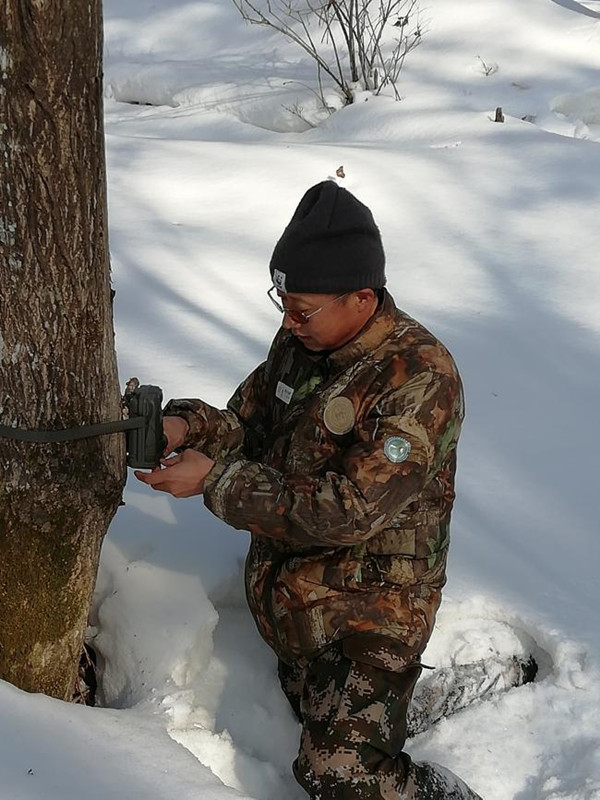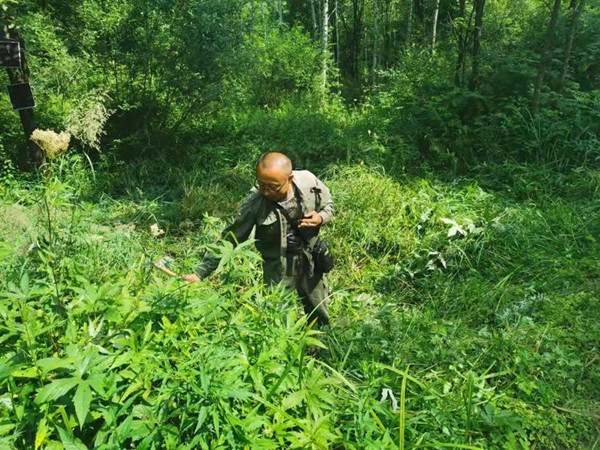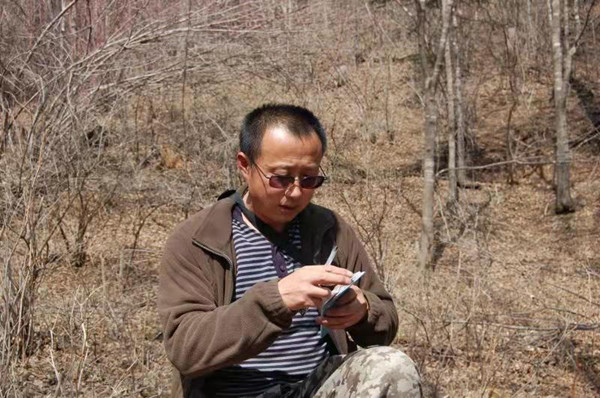Hunter becomes forest ranger to conserve wildlife

Wan Zhongwu sets up an infrared camera in the Huangnihe National Nature Reserve in Jilin province. [Photo provided to chinadaily.com.cn]
In recent decades, Wan Zhongwu, 50, has walked through forests supervised by the Huangnihe Forestry Bureau in Dunhua, Jilin province, countless times.
Before 1996, Wan was a prominent hunter in the region and spent most of his time looking for prey. Now he works as a forest ranger in the Huangnihe National Nature Reserve, applying his knowledge to wildlife conservation.
Wan was born on a forest farm in the Changbai Mountain area. When he was 15 years old, he began to hunting with his father. He was gifted, and two years later could go alone.
However, hunting traditions changed when China implemented a strict firearms control policy in 1996 and again when it began to promote environmental protection measures in 1998.
"In 1996, I handed my shotgun over to the local public security department, marking the end of my career as a hunter," he said. "To increase my family's income, I began planting black fungus and breeding forest frogs in nearby mountain areas."

Wan Zhongwu patrols the forest. [Photo provided to chinadaily.com.cn]
In the summer of 2012, he received a call from the Huangnihe Forestry Bureau, inviting him to help some teachers and students from the College of Wildlife Conservation at Beijing Normal University set up infrared cameras in the forests.
"Because of my hunting experience, I needed only two days guiding them to set all their infrared cameras in locations where wild animals were most likely to visit," he said. "During that time, the teachers and students passed along a lot of knowledge about wildlife conservation, giving me the idea of joining them."
Since then, he has participated in various conservation activities as a volunteer, applying his rich wildlife knowledge and experience.
In October 2016, he accepted the invitation to become a forest ranger to help conserve wildlife in the reserve. Walking an average of 15 kilometers through the forests every day, his main duty is to find and record the tracks of endangered wild animals and to remove traps left by humans.
"We usually set out at 7 am and return at around 4 pm," he said. "It is so cold in the northeastern winter that we are forced to eat lunch in the car."
Rangers also shoulder the tasks of implementing anti-hunting measures and raising public awareness of wildlife conservation.
"In our spare time, we often visit different forest farms and villages to share our knowledge of wildlife conservation and discourage illegal hunting," he said. "Wildlife conservation requires joint efforts from the whole society."
"Most members of our patrol team are young people who lack experience in the forest," Wan said. "I would like to pass my experience to the next generation."

During a patrol, Wan Zhongwu records information. [Photo provided to chinadaily.com.cn]
